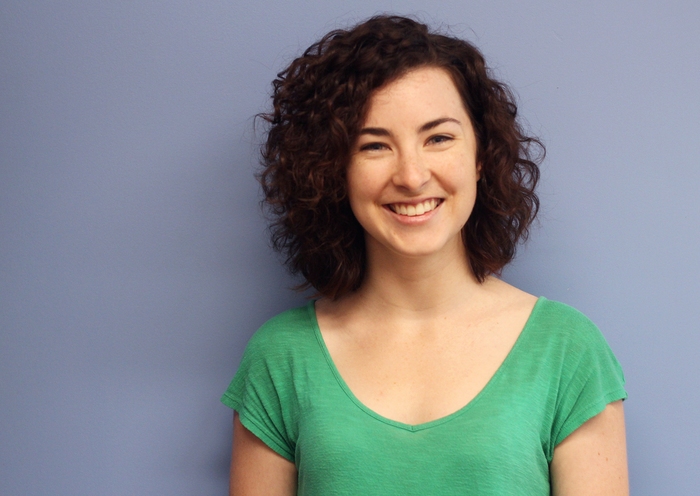News and Releases

Alumni Profiles
On Speaking Truth to Power: reflections from an English student working in Communications
By Beth Downey | Monday, June 22, 2020 @ 9:00 AM | Alumni Profiles

CMU is introducing a new combined Major in English and Communications & Media. Formalizing the combination is a progressive move, but the pairing itself is nothing new.
My first year at CMU, fresh off the Outtatown program, I took a Major Authors course focussing on the works of Charles Dickens. (At the time, my absolute favourite author.) In that course, I learned one of the most valuable things I would learn in undergrad overall:
Before he was Charles Dickens—social justice crusader, philanthropist, contemporary media darling, celebrated author of perennial classics David Copperfield, A Tale of Two Cities and Great Expectations, among others—Charles was a court reporter and journalist.
Dickens' first day-job was a clerkship in law. At the time, it was like being the kind of office assistant that runs documents, takes dictation, and fetches coffee. In short, the doldrums. To move up in the world he schooled himself in the Communications and Media skills of his day—specifically Gurney shorthand, a form of stenography.
In 1829 Dickens began freelancing as a court stenographer. Two years later he was writing for the Mirror of Parliament reporting on the houses of British government. By 1834 he had a post with the Morning Chronicle: when Parliament was in session he reported the news; in between, he wrote theatre reviews and fictional "sketches" that later formed the basis of his first novel.
 Stenography is a system for transcribing speech
Stenography is a system for transcribing speechin real time, much faster than writing
with the alphabet.
This information changed my mindset completely about how I might equip myself to maybe, just maybe, be a writer one day. The huge benefit Dickens' background in Communications gave his literary career—both as a professional in an industry and as an artist in a particular place and time—was obvious.
If not for his background in court reporting, we might not have Dickens' historical riot novel Barnaby Rudge (1841), prefaced with a 1777 speech from Parliament "on Frequent Executions." We might not have Bleak House (1853), his scathing state-of-the-nation novel, featuring this barn-burner after the death of an illiterate urchin named Jo:
The light is come upon the dark benighted way. Dead! Dead, your Majesty. Dead, my lords and gentlemen. Dead, Right Reverends and Wrong Reverends of every order. Dead, men and women, born with Heavenly compassion in your hearts. And dying thus around us every day.
It was "Right Reverends and Wrong Reverends" that got me (not that addressing the crown is a gentle opener.) I realized that while I had always believed art should speak truth to power, I hadn't considered that learning transactional forms of writing—and by extension, spending time in the places where power moves—might better prepare me to make art that did so effectively. I made up my mind to 'do like Dickens' and cultivate as diverse and professionally adaptable a skill set in writing as I could.
Since then, I've fallen in love with many new writers, past and present, who turn out to have backgrounds in Communications. Examples include: Ernest Hemingway (1899-1961; "A Clean Well-Lighted Place,") George Orwell (1903-1950, "Politics and the English Language,") Graham Greene (1904-1991,) Joan Didion (1934-present,) George Elliott Clarke (1960-present), Gillian Flynn (1971-present, Sharp Objects,) and Lynn Coady (1970-present, The Antagonist).
While pursuing my ongoing studies in literature I have taken jobs as a copywriter/editor, a research assistant, and a reporter (though I dare not say journalist.) Today, I freelance as a literary editor and am thrilled to be a permanent nine-to-fiver writing for Communications at CMU.
It's still early days, but the results of pursuing this background have been so rewarding. In the last five years, both my academic and creative writing pursuits have truly begun to flourish. My state-of-the-nation novel isn't quite finished, but I'm writing better stories, better poetry, and better scholarship than I ever would have if not for those job opportunities, and a class on Charles Dickens, for which I am eternally grateful.
Note from the author: Loving 19th century novels can leave your bookshelf shockingly white and heavily male. While they don't usually make the "canon," Black 19th century writers are out there. And, as in all times, some 19th century novelists were better allies than others: for a change of pace, race, and perspective, I recommend Herman Melville (Benito Cereno and Moby-Dick), and Harriet Beecher Stowe (Uncle Tom's Cabin.)
KEYWORDS: English and Communications and Media, Communications, English, Media

 Print This Article
Print This Article